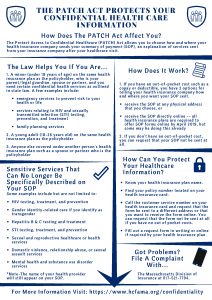If laboratory tests are recommended by your clinician, you will be directed to the UHCS lab drawing station for your tests. At this time please schedule an appointment in advance. There may be some cost associated with lab testing, vaccinations and STI testing, depending upon your health insurance. We encourage you to review your health insurance information or speak with your health insurance company to learn more.
How much do medical and mental health labs, imaging and medication cost?
- Medication, Labs, and Imaging are charged through your insurance and often have copays that will be charged to you.
- To find out the estimated cost of medications, labs, imaging, or visits with a specialist please contact your insurance provider or visit their website for an estimate.
- If you are covered by the Northeastern University Student Health Plan – NUSHP, a BlueCross BlueShield PPO plan, you can log into your MyBlue account and select “find a doc and estimate cost”. This will allow you to find an estimate of cost or the student can contact member services (888-648-0825). To learn more about the MyBlue app click here.
- If you are covered by a different insurance company, we recommend that you call to confirm they accept Baystate Reference Laboratories as a provider.
- Vaccinations: UHCS offers Tdap, Hep B, MMR, Varicella, Meningococcal ACWY, Meningococcal B, HPV and Influenza vaccines.
- Influenza vaccines are free of cost for all students.
- Students who are enrolled in NUSHP can receive vaccinations at no cost.
- If you are on an alternative insurance plan, you will be charged the full cost of the vaccine and can submit it to your insurance company for reimbursement (which may cover the full or part of the cost of the vaccine). You can also seek vaccination at a local pharmacy that accepts your insurance to avoid having to pay up front for the cost of the vaccine.
- Vaccine costs (per dose): Tdap $62, Hep B $108, MMR $115, Varicella $226, Meningococcal vaccine (Menactra) $164, Meningitis B $210, HPV $255 and Quant Gold $55.
- Titers for Hepatitis B, Varicella, Measles, Mumps, and Rubella can be tested at UHCS. Please schedule an appointment prior to coming to UHCS. If you have orders from an outside medical provider, please bring them with you at the time of the appointment. If you require Titers for employment/co-op (non-medical reasons), the charge is $25 per titer. Students on NUSHP obtaining Hep B, MMR, Varicella and Quantiferon have no charge.
- Sexually Transmitted Infection (STI) testing can be charged through insurance or you can opt to self-pay to protect your privacy from your insurance policy holder (often a parent). If you would like to self-pay: Gonorrhea and Chlamydia are tested together and cost $25. HIV Testing costs $25. Syphilis Testing costs $25. You will be asked to pay at the time of your lab draw. You can also seek testing at local clinics in Boston that offer free STI testing.
How do I self-pay for STI testing?
Students who choose to self-pay can do so with a major credit card, debit card, or non-food related Husky dollars. Payment must be made prior to testing.
Things to consider – health insurance charges
Explanation of Benefits – EOB
When someone receives services using insurance, the insurance company sends an Explanation of Benefits (EOB) statement that explains which services were used and paid for. The EOB is typically sent to the person who subscribes to the insurance plan. If your parent is the subscriber, they may be sent the EOB. You can, however, contact the insurance company to request that the EOB for services that you use be sent to you. The subscriber will not be able to access your records or any other information about your sessions. If you have insurance through Northeastern (NUSHP), please make sure that the address listed on the plan is up to date so that EOBs will be sent to your current address.
The Massachusetts Patch Act
The Protect Access to Confidential Healthcare (PATCH) Act allows you to choose how and where your health insurance company sends your summary of payment (SOP), an explanation of services sent from your insurance company after your healthcare visit.
Contact your health insurance provider to learn more about where your explanation of benefits (EOB) is sent and to update your address.
